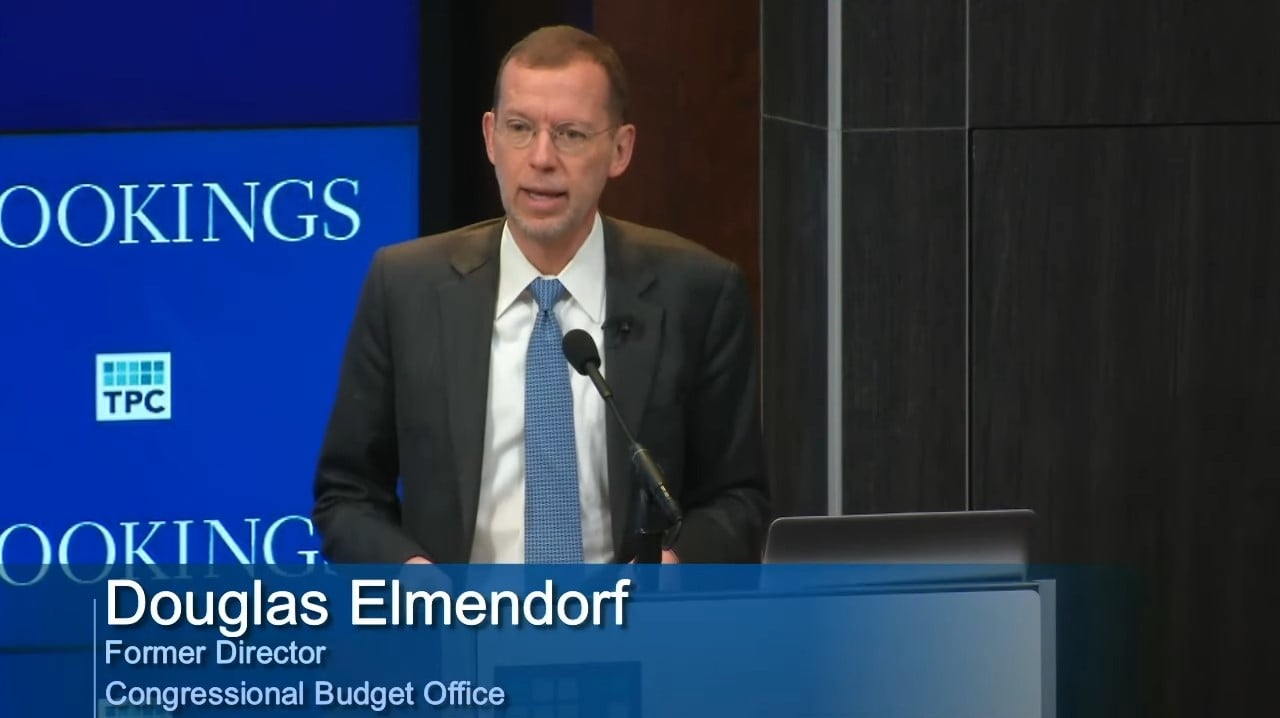On April 10, the Urban-Brookings Tax Policy Center hosted a discussion on America’s debt and how we can better invest in the future.
Fiscal therapy: Curing America’s debt addiction and investing in the future – Part 1
[REITs]Q1 hedge fund letters, conference, scoops etc
Transcript
Good morning everyone and welcome. I am delighted to be back at Brookings today and honored to have been invited by Bill to offer my views on this important occasion. Bill Gale has been one of the most thoughtful and interesting voices on U.S. tax and budget policy for 30 years. If you have not spent enough time with Bill and his writings to know that then this is your chance. This book offers you in one place a collection of great information and great wisdom if you do know Bill and his works well enough to understand why he has been such a thoughtful and important contributor to the budget policy discussions. This book is also your chance to have a lot of information and wisdom in one place. So all of you should have a copy of this book and if you don’t already then you should certainly get one on your way out. I have learned a tremendous amount from Bill over many years and I learned a lot more reading this book so I really commend it to you. I also want to say here at the start how grateful I am to bill for giving me the opportunity to join Brookings in 2006. At that point I had been in Washington for more than a dozen years and I’ve been lucky enough to have interesting jobs where I could be engaged in policy discussions. But those had mostly my role had mostly been in the shadows and Bill decided to take a chance on bringing me out into the public domain.
And that opportunity to come to Brookings changed my life as chances to come to Brookings have changed many people’s lives over many decades and I’ll always be grateful to you Bill for taking that chance on me and bringing me in to this place and give me the opportunities that have followed Bill’s terrific book. Physical therapy is about making choices as he explains. Federal debt is larger relative to the size of the economy today than at almost any point in our nation’s history. And under current policies will continue to rise indefinitely. As far as the eye can see that path is not sustainable and therefore we will be forced at some point to make choices that increase federal taxes reduce federal spending or both but Bill views the necessity of making choices as an opportunity as well. And I think that is exactly right. As Bill explains the federal government is not taxing or spending in ways that advance our national interest very effectively. Productivity growth is slow by historical standards. Yet we have reduced federal investment in infrastructure and research and development to nearly the smallest percentage of total output in my lifetime. Inequality has risen significantly in economic mobility has declined. Yet we have not responded with policies to expand access to high quality education and training for other young people or older people. The share of the American population over age 65 is rising to unprecedented levels which increases federal spending on our largest and most popular benefit programs. And yet we have reduced taxes to the smallest percentage of GDP than any sustained period for 80 years and the tax system we do have the way we raise revenue is neither efficient nor equitable. We can do better.
We need to do better and the way to do better is exactly as Bill says which is to quote focus on realistic solutions unquote based on quote facts and evidence unquote. There is much that economists and policy analysts don’t know about how the world works and our prescriptions for fiscal therapy should be offered with some humility just as prescriptions for physical therapy should be offered with some humility. Nonetheless there is much that economists and other policy analysts do understand about the effects of federal policies based on historical experience and careful research and that knowledge should be used in forming policy. Bill’s book presents the crucial facts and evidence about federal budget policy that elected officials should use in making budget decisions. I agree with many of Bill’s specific recommendations on both the tax and spending side and I’m really delighted to see so much good sense in one place that I will carry around and refer to when I need it. But I decided that rather than run through Bill’s menu I’ve just focused on one issue and in particular an issue where my views may differ somewhat from Bill’s views or the views of other members of the panel. That issue is whether we should be trying to reduce budget deficits in the near term. I think we should not specifically I think the evidence shows that reducing projected budget deficits will be necessary ultimately but would be a mistake to do. Now let me explain.





